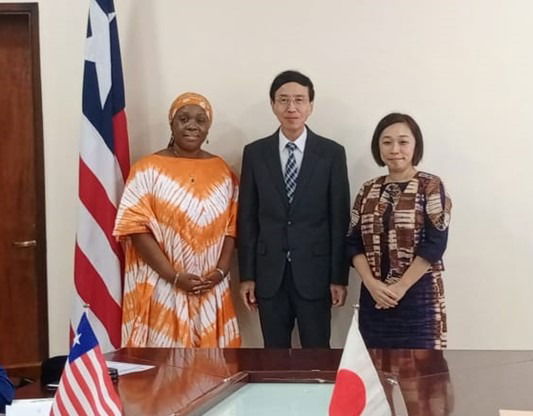Gov’t to Launch Major Road Projects in October with Japanese Funding

In a significant step toward improving national infrastructure and regional connectivity, the Government of Liberia has announced the commencement of three major road construction projects slated to begin in October 2025, with funding support from the Government of Japan. The announcement was made by Minister of Information, Culture Affairs, and Tourism, Hon. Jerolinmek M. Piah, who emphasized the government’s unwavering commitment to delivering modern road networks that will ease transportation, boost economic growth, and enhance access to basic services for the Liberian people. Among the projects is the long-awaited four-lane highway from Johnson Street to the Freeport Corridor, a critical urban transport link that serves thousands of commuters and commercial vehicles daily. Once completed, this highway is expected to significantly reduce traffic congestion, enhance road safety, and improve trade logistics between central Monrovia and the Freeport of Monrovia Liberia’s busiest port. In addition to the Freeport corridor project, another vital urban development initiative will see the construction of a new road connecting Broad Street to the Clay-Bomi County highway. This road will serve as a vital link between Monrovia’s business district and the fast-growing western corridor of the country. The project will also support rural-urban integration and contribute to decongesting the capital. “These projects mark a major milestone in the Boakai administration’s promise to prioritize roads and infrastructure,” Minister Piah stated. “With support from the Government of Japan, we are transforming vision into tangible development that will benefit Liberians across all regions.” Minister Piah further disclosed that road works will also begin this October on the Tapita–Toe’s Town road corridor, linking Nimba County in the north to Grand Gedeh County in the southeast. This major inter-county route will strengthen national cohesion and stimulate agricultural trade, as it connects some of the country’s most productive regions. The Tapita–Toe’s Town project has long been viewed as a strategic priority for national development, given its potential to unlock economic activities in hard-to-reach regions and ensure faster access to health, education, and emergency services. “These road initiatives are not just about asphalt and concrete,” Minister Piah emphasized. “They are about connecting families, reducing travel times, increasing school attendance, expanding healthcare access, and empowering our economy from the ground up.” The Government of Japan’s funding support reflects the deepening of bilateral relations between the two countries, especially in infrastructure, capacity building, and sustainable development. Japanese engineers and development experts are expected to work closely with Liberian counterparts to ensure high-quality implementation that meets international standards. The projects are being coordinated through the Ministry of Public Works in collaboration with the Ministry of Finance and Development Planning, the National Road Fund, and Liberia’s development partners. Local communities will be engaged throughout the project cycle to ensure transparency, ownership, and minimal disruption. The Government of Liberia has also assured the public of its commitment to enforcing accountability and quality control mechanisms throughout the road construction process. In closing, Minister Piah reiterated that the October launch of these key projects marks the beginning of a broader national infrastructure renewal strategy under President Joseph Nyuma Boakai’s leadership. “This is just the start,” Minister Piah said. “More roads are coming. And with every kilometer we pave, we bring Liberia closer to inclusive development, unity, and shared prosperity


